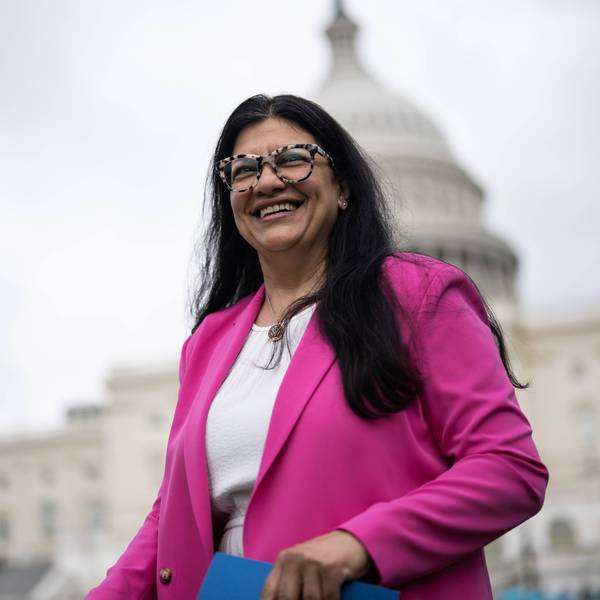Citizens in dozens of communities voted overwhelmingly on Tuesday for their legislators to pass a constitutional amendment to overturn the U.S. Supreme Court's Citizens United v. Federal Election Commission decision, which opened the door for the super-rich and corporations to trample democracy.
As they headed to the polls to vote in what turned out to be the most expensive midterm election in history--one in which outside money from undisclosed sources played an outsized role and the number of small individual donors shrank--voters across the country made clear their desire to end corporate personhood and get big money out of politics.
"It is time for Congress to pass the We the People Amendment and send it to the states for ratification. The leadership of both parties need to realize that their voters are clamoring for this amendment, and we are only going to get louder."
--Kaitlin Sopoci-Belknap, Move to Amend
According to Wisconsin Move to Amend, the state chapter of the national coalition working to overturn Citizens United, residents of 12 Wisconsin communities voted in favor of amending the U.S. Constitution to reflect that:
1. Only human beings--not corporations, limited liability companies, unions, nonprofit organizations, or similar associations--are endowed with Constitutional rights; and
2. Money is not speech and, therefore, regulating political contributions and spending is not equivalent to limited political speech.
The local measures, which were all similarly worded, gained anywhere from 70 percent of the vote in Milwaukee County to 83 percent support in the village of Park Ridge. There are now 54 jurisdictions in Wisconsin that have called for such an amendment, in addition to 16 state legislatures and well over 500 municipalities nationwide.
Paradoxically, Wisconsin voters also re-elected Republican Governor Scott Walker on Tuesday, whose success can be credited at least in part to the post-Citizens United era of campaign finance.
In 2012, in the wake of the failed effort to recall Walker, journalist Amy Goodman wrote: "Central to Walker's win was a massive infusion of campaign cash, saturating the Badger State with months of political advertising. His win signals less a loss for the unions than a loss for our democracy in this post-Citizens United era, when elections can be bought with the help of a few billionaires."
Also on Tuesday, Move to Amend measures in Alachua County, Florida and the Ohio towns of Chagrin Falls and Mentor all passed with at least two-thirds of the vote.
"It's pretty obvious that in each and every election that more and more money is coming from fewer sources," Ohio's Move to Amend coordinator Greg Coleridge told the Plain Dealer. "It's toxic to democracy. Voters are saying that they've had enough."
In Massachusetts, voters in 18 districts were asked: "Shall the state representative from this district be instructed to vote in favor of a resolution calling upon Congress to propose an amendment to the U.S. Constitution affirming that 1) rights protected under the Constitution are the rights of natural persons only and 2) both Congress and the states may place limits on political contributions and political spending?"
While there was no official tally of which cities and towns voted in favor of the non-binding ballot question, the measure appeared to have won solid support in communities all over the state, including Appleton, Fitchburg, and Hopkinton.
The resounding victories should send a sharp message to Congress, said Kaitlin Sopoci-Belknap, national director of Move to Amend.
"Nearly all Americans share the sentiment that corporations should not have the same rights as people, and big money in politics should be removed," she said. "It is time for Congress to pass the We the People Amendment and send it to the states for ratification. The leadership of both parties need to realize that their voters are clamoring for this amendment, and we are only going to get louder."



